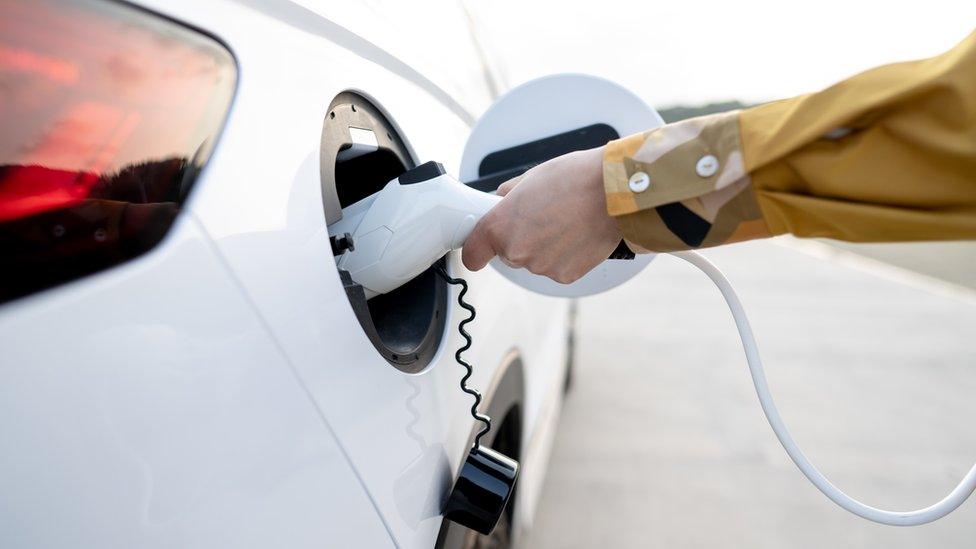EV: Wales' electric vehicle charging strategy embarrassing - report
- Published
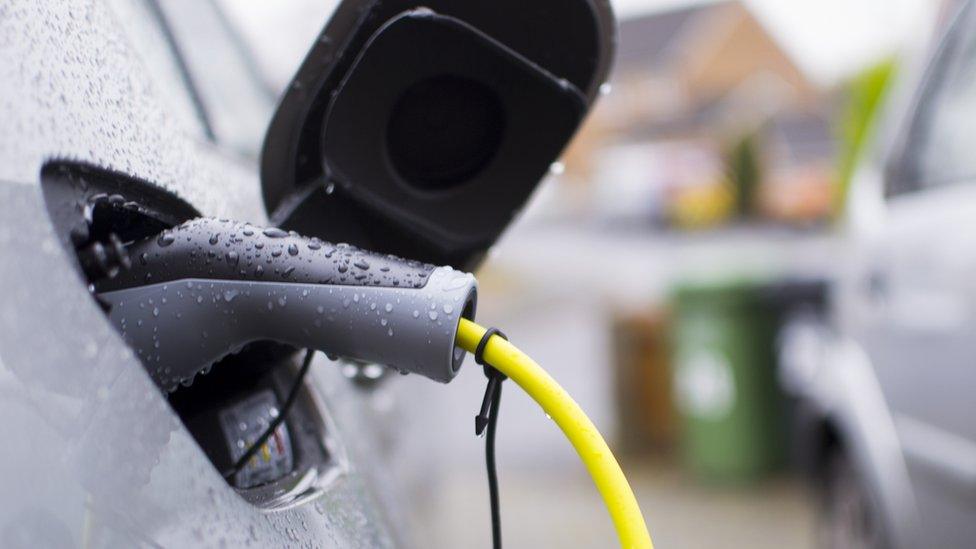
Out of the 37,000 public charging devices across the UK, only 2,400 (6.4%) were in Wales, Senedd committee hears
Progress towards getting more electric vehicles on the road in Wales has been described as "embarrassing".
A cross-party Senedd committee looked at the Welsh government's plan to develop a network of charging points.
The chairman of the committee, Plaid Cymru MS Llyr Gruffydd, said its strategy had been beset by "broken promises and inadequate progress".
The Welsh government said Wales had seen the biggest growth in charger and rapid charger provision across the UK.
Fewer than half of the Welsh government's main commitments had been delivered on time, while work on some of the others had only just begun, many months after the deadline, a report by the Senedd's Climate Change, Environment and Infrastructure Committee found.
It said the lack of progress calls into question the Welsh government's ability to deliver, especially in rural areas where the lack of electricity grid capacity is a significant issue.
Its action plan, external includes setting up a "connections group" to co-ordinate the development of infrastructure, yet the group has never been established.
Another proposed group, which would have brought together community organisations to determine the best locations for charging points across the country, was also never created.
'Need to plan ahead'
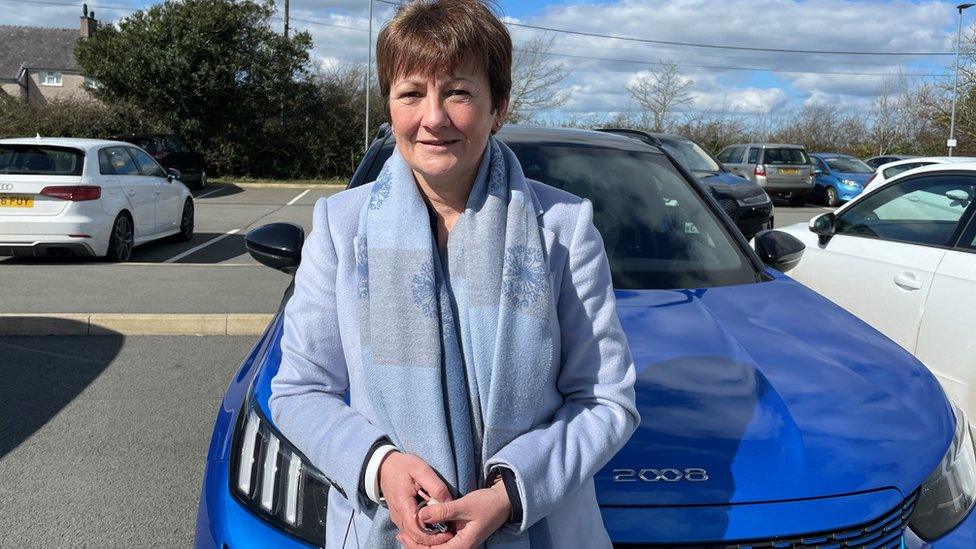
Gwenllian Owen says she needs to plan ahead more now she has an electric car
Gwenllian Owen from Llangefni, on Anglesey, took delivery of a new all electric vehicle two weeks ago and got rid of her petrol car.
"I think may main worry was: where will I get it charged? How much is it going to cost me to charge it? Especially now the cost of electricity and everything is so high," she said.
"It's working out quite well. I'm probably spending around £50 a month to charge it, while my previous car, to fill it up every week-and-a-half to two weeks, that would cost me about £75 to £80 to do that."
Asked about the availability of charging points, she said: "There's no doubt about that - there's a need.
"It is happening, but it's happening at a slower rate, so there needs to be a lot more investment from the government to ensure that the facilities are there for people when they are travelling.
"From north to south Wales, that's a journey I do in a motorhome, but I would really need to plan ahead if I drove down in my electric car because there would be a few stops on the way where I'd need to recharge.
"So yes, it's a lot of preparation, but it's part of the excitement, isn't it?
"I'm pleased with it. It's quiet, it's clean and I feel I'm doing my bit for the environment."
'Worst in Great Britain'
The committee heard evidence from industry experts.
Out of the 37,000 public charging devices across the UK, only 2,400 (6.4%) were in Wales, the Society of Motor Manufacturers and Traders (SMMT) told the committee in January.
Contacted by the BBC to verify these figures, SMMT said they were approximate figures for the whole of 2022 based on Zap Map, external data at the time of the hearing.
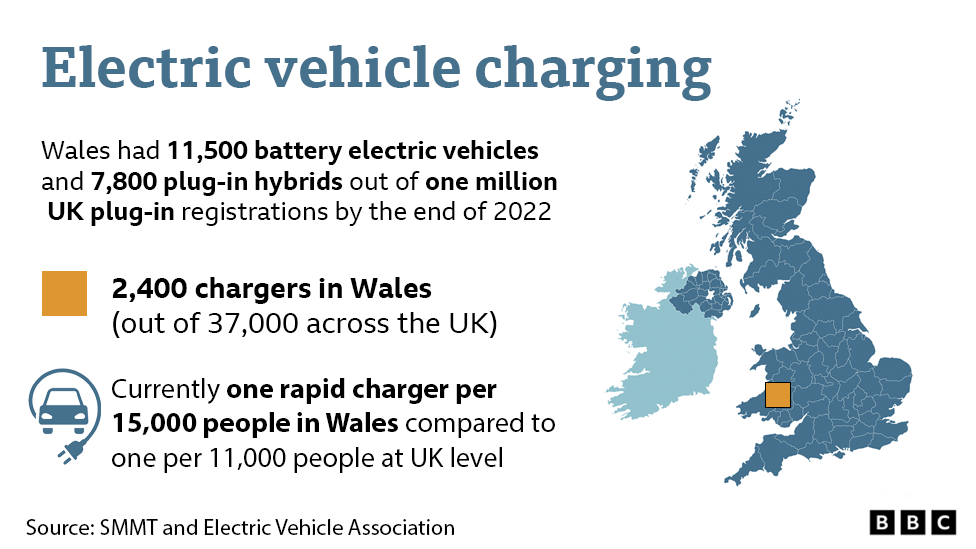
Members of the committee also heard that despite a large growth in the number of chargers over the past few years, in Wales there is just one rapid charger per 15,000 people compared to one per 11,000 across the UK.
Electric Vehicle Association (EVA) Cymru said that the lack of charging points represents the most significant barrier to the uptake of electric vehicles.
In terms of provision at home and work, EVA Cymru told the committee the Welsh government had also failed to review building regulations to ensure adequate parking spaces and charging points.
The report called on the Welsh government to complete a review as soon as possible and consider how hotels and visitor attractions could be encouraged to have charging points installed.
'Unacceptable and embarrassing'
Committee chairman Mr Gruffydd said people would only switch to electric cars if they felt confident about being able to charge their cars when they needed to.
"Frustratingly, this is far from the case today," he said.
"There has been some progress over the last few years but nowhere near where it needs to be.
"The Welsh government's Action Plan isn't even 18 months old yet and some of the targets have already been missed. This is unacceptable - and embarrassing."
Speaking on BBC Radio Wales, Deputy Minister for Climate Change Lee Waters said: "We've got a plan and we are working through it. We've got limited resources and rather than just spraying charging points everywhere we are working out where are the best places to put our resource to best effect."
Mr Waters said he was "not embarrassed" by progress made so far and said he did not think people should be nervous about the lack of electric charging points.
"I have an electric car and as long as you plan it's fine," he said.
"You will not regret buying one and once you have bought one you won't go back."
A Welsh government spokesman said: "We welcome today's report which contains some key learnings for us as we work to deliver the charging infrastructure Wales needs.
"We were pleased to see that Wales is now showing the greatest percentage increase of any UK region in charging and rapid charging provision.
"This is thanks to an ambitious delivery programme we have developed with key partners and we now look forward to building on these foundations."
- Published20 May 2022
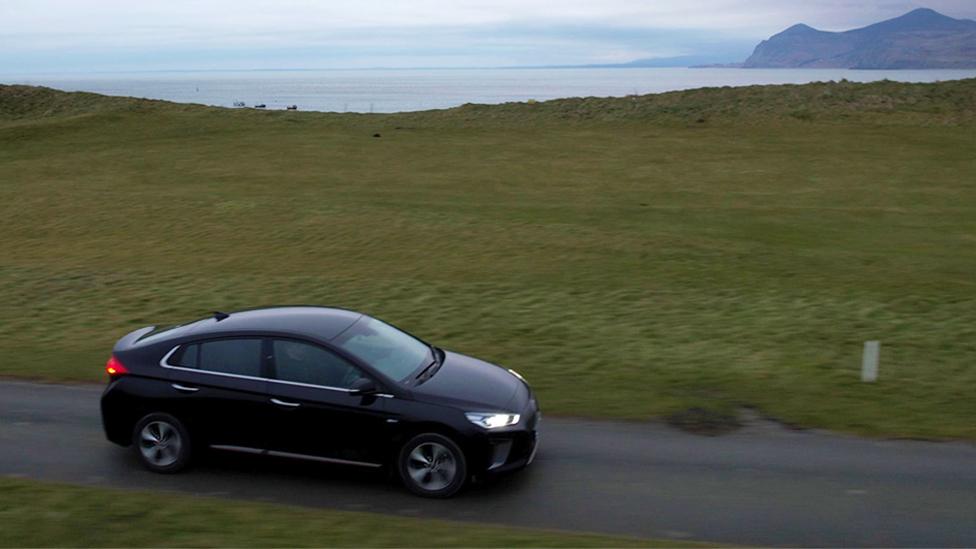
- Published26 October 2021
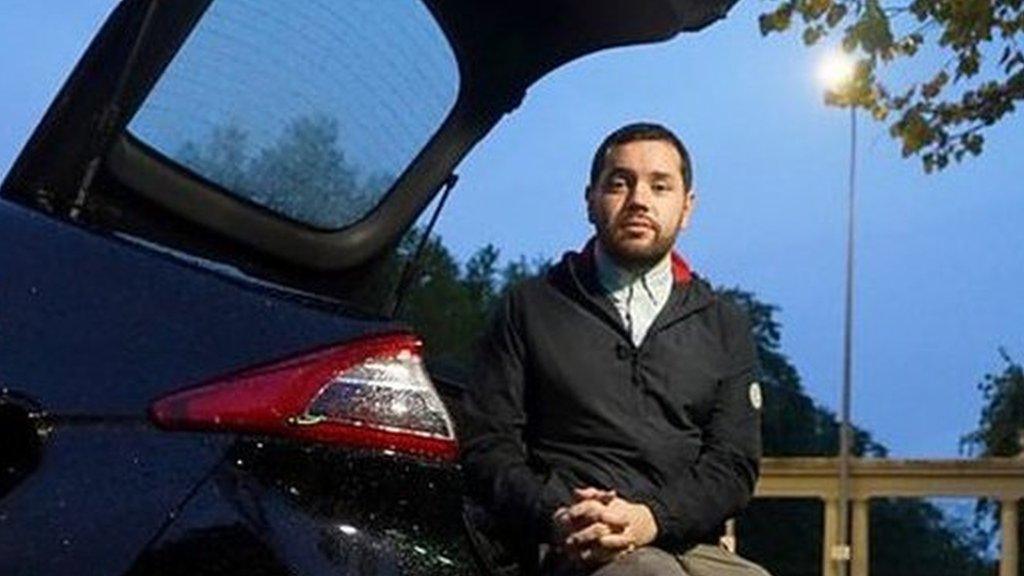
- Published28 October 2022

- Published26 October 2021
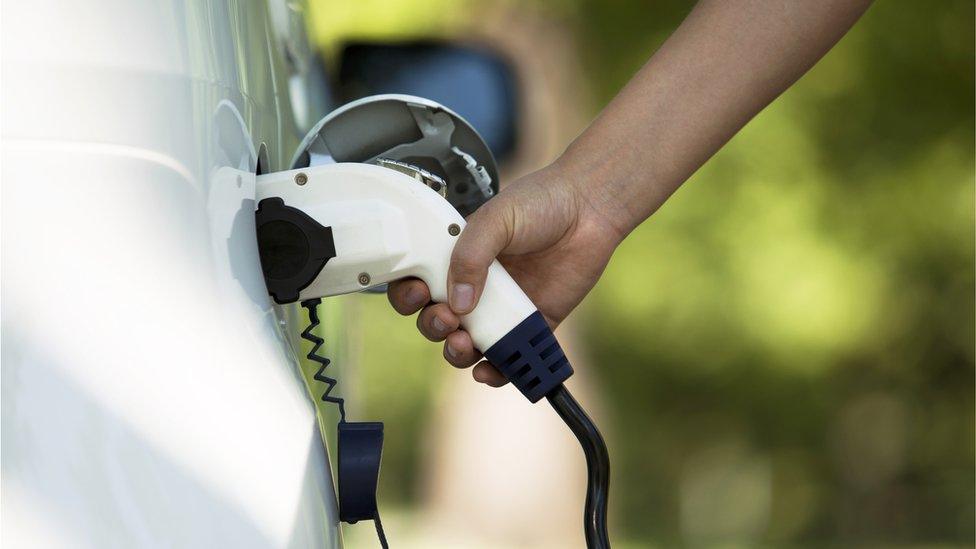
- Published26 February 2023
